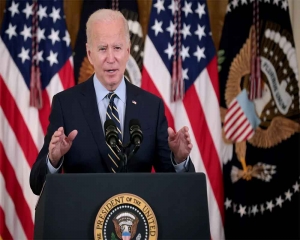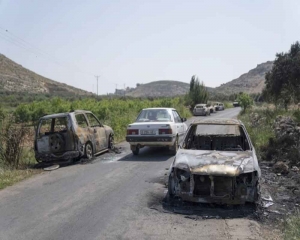The hidden nature of caste atrocities indicates that the problem is more pervasive and deeply rooted than official records may suggest!
Caste-based discrimination is a persistent problem deeply ingrained in Indian society. Addressing this complex issue requires a collective effort from various stakeholders, including the government, communities, and educational institutions. However, a significant challenge arises when individuals in positions of authority within these entities themselves believe in the caste system and engage in discriminatory practices.
Multiple reports highlight the prevalent issue of caste discrimination in rural schools, where generations of students have been subjected to such discrimination, even during activities like the mid-day meal program. Take the case of the government school located in Charson village in Bageshwar district in Uttarakhand. The principal of this school is accused by the locals of discriminating against students based on their caste. Recently, the principal faced allegations of severely beating an 11-year-old child belonging to the scheduled caste.
Manju Devi, the mother of the child, recounted her repeated visits to the school, where she pleaded with the principal to refrain from physically abusing her child and making derogatory comments about their caste. Despite her efforts, her child returned home on several occasions, sharing stories of being physically assaulted and humiliated due to their caste. "The government school in our village is the only viable option for my child's education, as we lack the means to afford private schooling. The prevalence of such discrimination within government institutions directly impacts the quality of education my child will receive," Manju expressed.
Her child was beaten up so much that she was forced to go to the police station and file a complaint against the principal. Following Manju's complaint, parents of many other children also came forward and lodged complaints against the discrimination faced by their children. Although the principal has refuted all the allegations, the gravity of the situation called for an administration-level investigation into the matter. Currently, the accused has been removed from her position of principal by the higher authorities.
Besides educational intuitions, the community has a bigger role in promoting this age-old discriminatory practice. 20 km away from Charson, lies Lamchula, a remote village, where caste discrimination is even more deeply rooted. The settlement of the entire village is divided based on upper and lower caste communities. Different sources of water have been reserved for both the lower and upper castes. Moreover, the right to worship has been taken away from the people belonging to lower castes, as they are not allowed to enter temples in the village. "During the fair held in our village during Janmashtami, Dalits are not allowed to enter inside the temple. They don't even have the right to worship. When offering is being distributed outside the temple, two lines are formed based on our caste," informed Dolly (name changed), a teenager from the village. Padam Ram, the village head, strongly condemns the discriminatory treatment of individuals from lower castes, particularly concerning their freedom to worship as they please. He expressed his dismay over the upper caste households maintaining separate utensils exclusively for visitors from lower castes. Padam Ram also highlighted the troubling prevalence of caste-based favouritism in political dynamics, emphasising the need to address caste politics and foster a more inclusive society. Regardless of education, caste takes precedence over everything else, revealing that society still grapples with deep-rooted casteism. Not only do Indian villages suffer from such discrimination, but even renowned institutions in metropolitan cities are making headlines for this very reason. A recent tragic incident at IIT Bombay, where a young boy from the Dalit community took his own life due to the unbearable humiliation he faced based on his caste, vividly illustrates the extreme and severe nature of this practice. In the period spanning from 2019 to 2021, India has witnessed a distressing 11 per cent surge in atrocities against Dalits. Recent data sourced from the National Crime Records Bureau (NCRB) reveals a notable escalation in recorded cases, with numbers escalating from 45,961 incidents in 2019 to 50,900 incidents in 2021. Notably, the state of Uttarakhand alone has experienced a staggering 35% increase in crimes targeting the Schedule Caste and Tribe communities over the past three years.
These cases represent only a fraction of the numerous caste-based atrocities occurring within society. It is important to acknowledge that many incidents go unreported, allowing the insidious roots of caste discrimination to further entrench themselves. The hidden nature of these atrocities highlights a concerning trend, indicating that the problem is more pervasive and deeply rooted than official records may suggest!
(The writer is a student of class 10 from Pothing village in Bageshwar in Uttarakhand. Charkha Features)

























